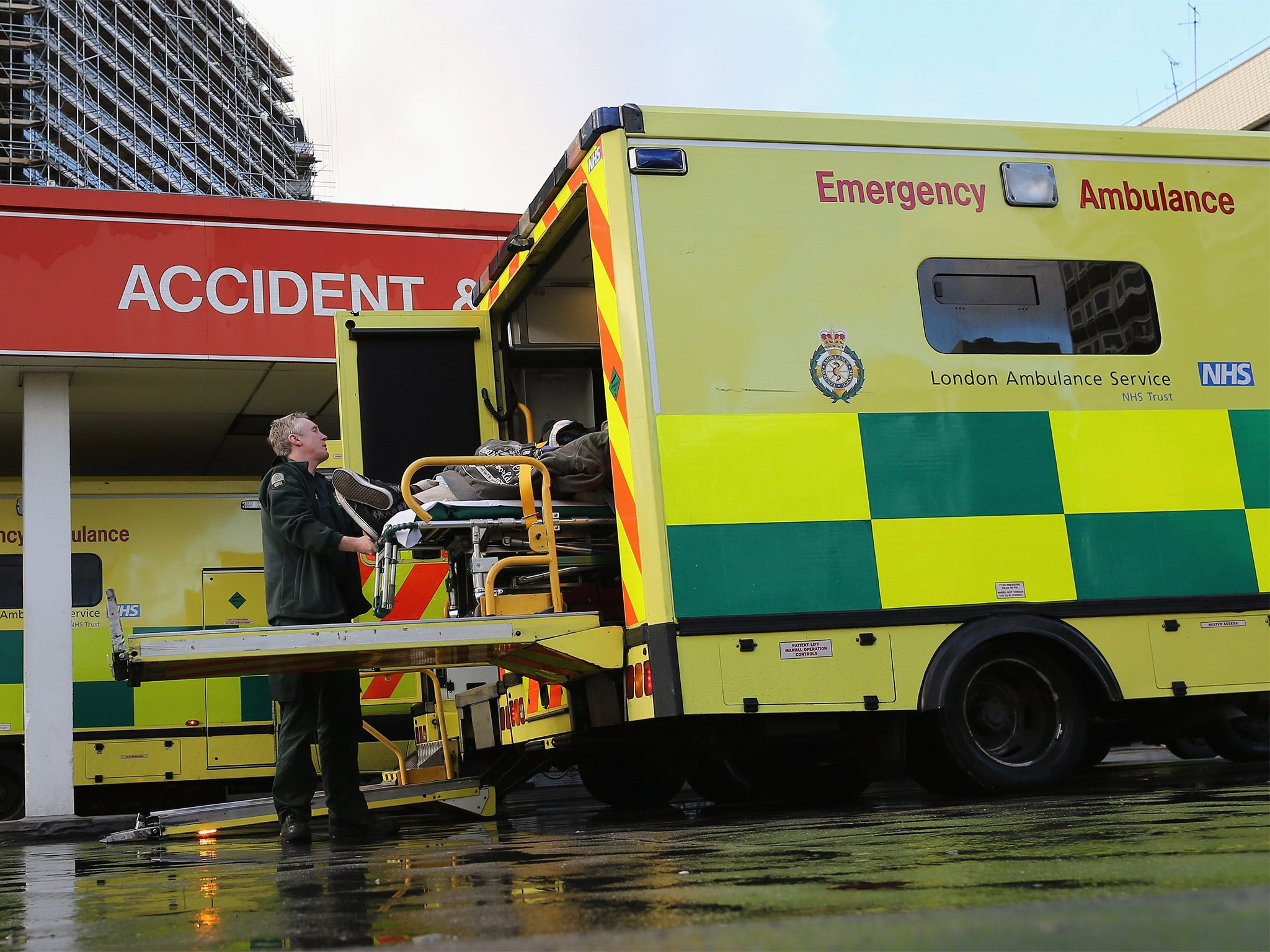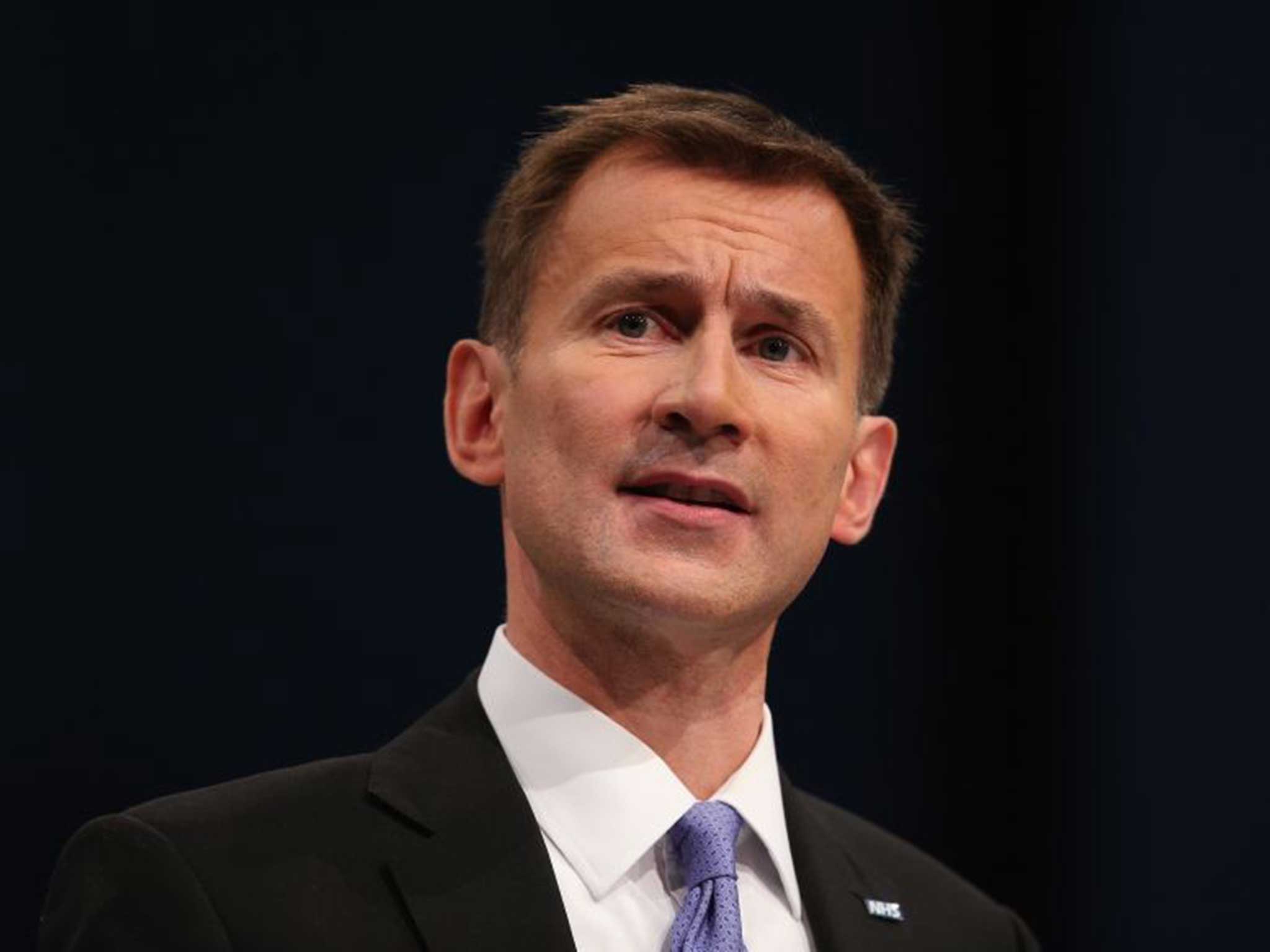NHS to extend 999 call time limits to ease pressure on strained services
Ambulance staff have attacked the plan as 'ridiculous'

Your support helps us to tell the story
From reproductive rights to climate change to Big Tech, The Independent is on the ground when the story is developing. Whether it's investigating the financials of Elon Musk's pro-Trump PAC or producing our latest documentary, 'The A Word', which shines a light on the American women fighting for reproductive rights, we know how important it is to parse out the facts from the messaging.
At such a critical moment in US history, we need reporters on the ground. Your donation allows us to keep sending journalists to speak to both sides of the story.
The Independent is trusted by Americans across the entire political spectrum. And unlike many other quality news outlets, we choose not to lock Americans out of our reporting and analysis with paywalls. We believe quality journalism should be available to everyone, paid for by those who can afford it.
Your support makes all the difference.The NHS is to allow 999 call handlers three times as long to decide whether to dispatch an ambulance, in an attempt to ease pressure on stretched emergency services.
Call handlers currently have only 60 seconds to make a decision, but from February this will be extended to three minutes in two pilot areas in England, covering 15 million people.
The most serious calls – such as a cardiac arrest or when the patient has stopped breathing – will still initiate an immediate ambulance response.
Jeremy Hunt, the Health Secretary, said the pilots had been ordered based on “clinical advice that this will improve the chances of survival for patients”.
But ambulance staff have attacked the plan as “ridiculous” and warned it would lead to more deaths.
Pilots will be carried out in London and the South West. NHS England said granting call handlers more time to assess a patient on the phone will lead to fewer wasted ambulance call outs.

However, the GMB union, which represents ambulance staff, said the plans would “only serve to bring worse outcomes for patients.”
“We will see people die more often than we see at the moment from conditions that can be treated if the right resource is got to them in good time,” said Tony Hughes, GMB’s ambulance officer for London.
Ambulances currently have a target of reaching 75 per cent of life-threatening incidents within eight minutes, but under the new measures, the point at which the “clock starts ticking” could now come up to two minutes later, for all but the most serious calls.
Professor Keith Willett, NHS England’s director for acute care, insisted that the changes were “not about relaxing standards”.
“By acting with slightly less haste on the calls, we believe we can get to more patients with more speed,” he said.
According to NHS England, only 10 per cent of 999 calls are for genuinely life-threatening situations, despite ambulance services currently categorising 40 per cent as such. A number of conditions, including overdoses and gunshot wounds, will be upgraded into the most urgent category – Red 1 – for the pilots.
Mr Hunt ordered the NHS to bring forward measures to reduce pressures on ambulance services two months ago, in the wake of what he called an “unprecedented increase in demand”.

Ambulance service chiefs have welcomed the pilots of extended 999 call times.
Anthony Marsh, chair of the Association of Ambulance Chief Executives, said the new measures would “protect patients and save lives”.
“This is a change that our staff, who know the system better than anyone, have been pushing for as they know it will save countless lives,” he said.
However, Labour’s Shadow Health Secretary Andy Burnham questioned why the Government wanted to conduct “experiments” with ambulance waiting times during a winter of unprecedented pressure on the NHS.
"We're not against the idea of a pilot but it should be done in a quieter summer period. The Government must urgently provide reassurance this can be done without putting patient safety at risk,” he said.
Latest weekly figures from NHS England show that despite an improvement in performance, hospital A&Es fell well below the target of treating 95 per cent of patients within four hours last week, with only 84.3 per cent of patients treated within the target time.
New monthly A&E waiting times figures for Wales and Northern Ireland meanwhile show even poorer performance than in England. In December, only 76.7 per cent treated in four hours in Northern Ireland and 81 per cent in Wales.
Join our commenting forum
Join thought-provoking conversations, follow other Independent readers and see their replies
Comments